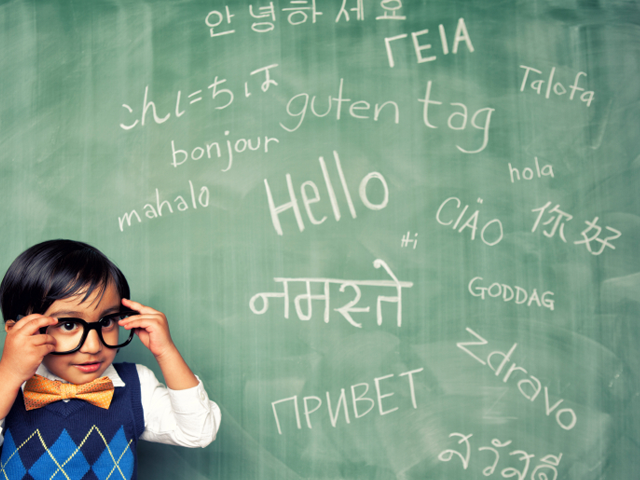On a Day for Languages, Discovering, Celebrating, and Saving Our Mother Tongues

(RichVintage/iStockPhoto)
In her essay "Mother Tongue," Amy Tan sets out to recreate "all the Englishes [she] grew up with." I used to teach the essay to undergraduates at New York University and employed it as a jumping off point for an exploration of students' own "mother tongues." And I've often wondered about my own. Is it, for example, the kind of Standard American English I approximate in my speech today, or the (horrible) Long Island dialect I spoke before about age 18? Or is it perhaps the dialect my wife and I speak at home now — mostly English, with a strong Korean influence and bits of Mandarin and Japanese.
In graduate school, I did a study of what linguists refer to as evidence of language transfer. The subject was my wife (a native Korean speaker) learning Japanese (her second foreign language, after English); I looked for English influence in her Japanese. While I found a few traces, what's even more interesting is that I now speak English at home with a bit of Korean language transfer — leaving out articles here and there and pronouncing words with an ever-so-slight Korean accent! For example, I'll often soften the "th" in "this" by pronouncing it more like a "d" sound. It's actually easier to say and sounds better too — just try it. We've also naturally — and completely unconsciously — adopted several Japanese and Korean words into our largely English conversations because they are hard to translate or fully capture in English. For example, if we're about to miss the train, we'll naturally say that we’ll be "giri-giri," a Japanese expression suggesting "it's going to be tight." If one of us is hungry and we need to wait a while before dinner, the other will likely say "chom chama," a Korean expression meaning to "endure it" or "be tough."
While our home language would sound strange to others, to us, it's perfectly intelligible and, if anything, richer than the standard variety. Amy Tan observes in her essay that people would criticize her mother's "broken" English, thinking it ungrammatical and nonsensical, but that she believes that her mother's speech contained all the nuances and richness of a complete and perfect language. In a similar way, what is often termed "Black English" (or African American Vernacular) is sometimes caricatured as being inferior or imperfect — the reality is that it is a fully grammatical dialect of English in which the verbs, for example, follow precise and consistent rules and patterns. And although those rules may be somewhat different from most "mainstream" varieties of English, they are no less regular or systematic.
But why should we care about these "mother tongues" in the first place? Wouldn't it be easier if everyone just spoke Standard American English? By most accounts, there are something like five to six thousand languages spoken in the world, the majority of which are on their way to extinction. I'm not sure people appreciate what will be lost if we let these languages die, but one good analogy is to look at ancient languages. When Champollion used the Rosetta Stone to unlock the secrets of Egyptian hieroglyphics, that language had long been lost to the world — but by learning the language of the ancient Egyptians, we've been able to uncover a tremendous amount of information about their culture, history, and science. Similarly, more recent breakthroughs in deciphering the script of the ancient Maya have opened up new worlds of understanding about the astonishingly complex civilizations of the Pre-Columbian New World.
We continue to put the Maya glyphs and Egyptian hieroglyphics — and written language in general — on an academic pedestal, while continuing to ignore the plight of the many minority languages (most of them largely unwritten) that now face extinction across the planet. In celebration of the UN's International Mother Language Day, we should do what we can to preserve all of our precious linguistic heritage, and to pay tribute to all the Englishes (or Spanishes, or Russians, or Arabics, or Swahilis) that we speak.


